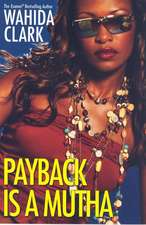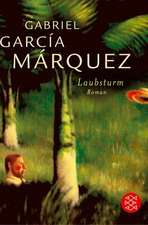Of Love and Other Demons
Autor Gabriel Garcia Marquez Traducere de Edith Grossmanen Limba Engleză Paperback – 31 mai 2008
| Toate formatele și edițiile | Preț | Express |
|---|---|---|
| Paperback (2) | 51.45 lei 24-30 zile | +16.22 lei 4-10 zile |
| Penguin Books – 5 mar 2014 | 51.45 lei 24-30 zile | +16.22 lei 4-10 zile |
| Vintage Books USA – 31 mai 2008 | 84.12 lei 3-5 săpt. |
Preț: 84.12 lei
Nou
Puncte Express: 126
Preț estimativ în valută:
16.10€ • 16.85$ • 13.40£
16.10€ • 16.85$ • 13.40£
Carte disponibilă
Livrare economică 10-24 martie
Preluare comenzi: 021 569.72.76
Specificații
ISBN-13: 9781400034925
ISBN-10: 1400034922
Pagini: 147
Dimensiuni: 133 x 204 x 13 mm
Greutate: 0.18 kg
Ediția:Reprint
Editura: Vintage Books USA
ISBN-10: 1400034922
Pagini: 147
Dimensiuni: 133 x 204 x 13 mm
Greutate: 0.18 kg
Ediția:Reprint
Editura: Vintage Books USA
Notă biografică
Gabriel García Márquez was born in Colombia in 1927. He was awarded the Nobel Prize in Literature in 1982. He is the author of many works of fiction and nonfiction, including One Hundred Years of Solitude, Love In The Time Cholera, The Autumn Of The Patriarch, The General In His Labyrinth, and News Of A Kidnapping. He died in 2014.
This book is translated by Edith Grossman, widely recognized as the preeminent Spanish to English translator of our time.
Extras
ONE
AN ASH-GRAY DOG with a white blaze on its forehead burst onto the rough terrain of the market on the first Sunday in December, knocked down tables of fried food, overturned Indians' stalls and lottery kiosks, and bit four people who happened to cross its path. Three of them were black slaves. The fourth, Sierva Maria de Todos los Angeles, the only child of the Marquis de Casalduero, had come there with a mulatta servant to buy a string of bells for the celebration of her twelfth birthday.
They had been instructed not to go beyond the Arcade of the Merchants, but the maid ventured as far as the drawbridge in the slum of Getsemani, attracted by the crowd at the slavers' port where a shipment of blacks from Guinea was being sold at a discount. For the past week a ship belonging to the Compania Gaditana de Negros had been awaited with dismay because of an unexplainable series of deaths on board. In an attempt at concealment, the unweighted corpses were thrown into the water. The tide brought them to the surface and washed the bodies, disfigured by swelling and a strange magenta coloring, up on the beach. The vessel lay anchored outside the bay, for everyone feared an outbreak of some African plague, until it was verified that the cause of death was food poisoning.
At the time the dog ran through the market, the surviving cargo had already been sold at reduced prices on account of poor health, and the owners were attempting to compensate for the loss with a single article worth all the rest: an Abyssinian female almost two meters tall, who was smeared with cane molasses instead of the usual commercial oil, and whose beauty was so unsettling it seemed untrue. She had a slender nose, a rounded skull, slanted eyes, all her teeth, and the equivocal bearing of a Roman gladiator. She had not been branded in the slave pen, and they did not call out her age and the state of her health. Instead, she was put on sale for the simple fact of her beauty. The price the Governor paid, without bargaining and in cash, was her weight in gold.
It was a common occurrence for a stray dog to bite people as it chased after cats or fought turkey buzzards for the carrion in the streets, and it was even more common during the times of prosperity and crowds when the Galleon Fleet stopped on its way to the Portobelo Fair. No one lost sleep over four or five dog bites in a single day, least of all over an almost invisible wound like the one on Sierva Maria's left ankle. And therefore the maid was not alarmed. She treated the bite herself with lemon and sulfur, and washed the bloodstain from the girl's petticoats, and no one gave a thought to anything but the festivities for her twelfth birthday.
Earlier that morning, Bernarda Cabrera, the girl's mother and the untitled spouse of the Marquis de Casalduero, had taken a dramatic purge: seven grains of antimony in a glass of sugared rosewater. She had been an untamed mestiza of the so-called shopkeeper aristocracy: seductive, rapacious, brazen, with a hunger in her womb that could have satisfied an entire barracks. In a few short years, however, she had been erased from the world by her abuse of fermented honey and cacao tablets. Her Gypsy eyes were extinguished and her wits dulled, she shat blood and vomited bile, her siren's body became as bloated and coppery as a three-day-old corpse, and she broke wind in pestilential explosions that startled the mastiffs. She almost never left her bedroom, and when she did she was nude or wearing a silk tunic with nothing underneath, which made her seem more naked than if she wore nothing at all.
She had already moved her bowels seven times when the maid who had accompanied Sierva Maria returned but told her nothing about the dog bite. She did, however, comment on the scandal at the port caused by the sale of the slave woman. "If she's as beautiful as you claim, she might be Abyssinian," said Bernarda. But even if she were the Queen of Sheba, it did not seem possible that anyone would pay her weight in gold.
"They must have meant in weighed gold pesos," she said.
"No, as much gold as the black woman weighs," the maid explained.
"A slave two meters tall weighs at least one hundred twenty pounds," said Bernarda. "And no woman, white or black, is worth one hundred twenty pounds of gold, unless she shits diamonds."
No one had been more astute than Bernarda in the slave trade, and she knew that if the Governor had bought the Abyssinian it could not be for something as sublime as serving in his kitchen. Just then she heard the first hornpipes and firecrackers of a fiesta, followed by the furious barking of the mastiffs in their cages. She went out to the orange grove to see what it could be.
Don Ygnacio de Alfaro y Duenas, the second Marquis de Casalduero and Lord of Darien, had also heard the music from his siesta hammock hanging between two orange trees in the grove. He was a funereal, effeminate man, as pale as a lily because the bats drained his blood while he slept. He wore a Bedouin djellaba in the house, and a Toledan biretta that increased his forlorn appearance. When he saw his wife as naked as the day God brought her into the world, he anticipated her question and asked:
"What music is that?"
"I don't know," she said. "What's the date?"
The Marquis did not know. He really must have felt quite puzzled to ask his wife anything, and she must have felt complete relief from her bilious attack to reply with no sarcasm. He had sat up in the hammock, intrigued, when the firecrackers exploded again.
"Good Lord!" he exclaimed. "Can it be that date already?"
The house adjoined the Divina Pastora Asylum for Female Lunatics. Agitated by the music and fireworks, the patients had appeared on the terrace that overlooked the orange grove, and they celebrated each explosion with ovations. The Marquis called up to them, asking where the fiesta was, and they cleared away his doubts. It was December seventh, the Feast of Saint Ambrose the Bishop, and the music and fireworks thundering in the slaves' courtyard were in honor of Sierva Maria. The Marquis slapped his forehead.
"Of course," he said. "How old is she?"
"Twelve," replied Bernarda.
"Only twelve?" he said, lying down again in the hammock. "How slow life is!"
The house had been the pride of the city until the beginning of the century. Now it was a melancholy ruin, and the large empty spaces and the many objects out of place made it seem as if the occupants were in the process of moving. The drawing rooms had kept their checkerboard marble floors and teardrop chandeliers draped in cobwebs. The rooms still in use were cool in any weather because of their thick masonry walls and many years of enclosure, and even more because of the December breezes that came whistling through the cracks. Everything was saturated with the oppressive damp of neglect and gloom. All that remained of the seignorial dignities of the first Marquis were the five hunting mastiffs that guarded the nights.
The resounding courtyard of the slaves, where Sierva Maria's birthday was being celebrated, had been another city within the city in the time of the first Marquis. This continued under his heir for as long as the illicit traffic in slaves and flour, directed in secret by Bernarda from the Mahates sugar plantation, had lasted. Now all that splendor was a thing of the past. Bernarda had been extinguished by her insatiable vices, and the slave yard reduced to two wooden shacks with roofs of bitter palm, where the last scraps of greatness had already been consumed.
Dominga de Adviento, a formidable black woman who ruled the house with an iron fist until the night before her death, was the link between these two worlds. Tall and bony, and possessed of an almost clairvoyant intelligence, it was she who had reared Sierva Maria. Dominga de Adviento became a Catholic without renouncing her Yoruban beliefs, and she practiced both religions at the same time, and at random. Her soul was healthy and at peace, she said, because what she did not find in one faith was there in the other. She was also the only human being with the authority to mediate between the Marquis and his wife, and they both accommodated her. Only she could drive the slaves out with a broom when she discovered them in the vacant rooms committing calamitous acts of sodomy or fornicating with bartered women. But after she died they would flee the shacks to escape the midday heat and stretch out on the floor in every corner, or scrape the crust out of the rice pots and eat it, or play with the macuco and the tarabilla in the cool corridors. In that oppressive world where no one was free, Sierva Maria was: she alone, and there alone. And so that was where her birthday was celebrated, in her true home and with her true family.
In the midst of so much music it was difficult to imagine dancing more silent than that of the Marquis's slaves and a few blacks from other distinguished households, who brought whatever they could. The girl displayed just who she was. She could dance with more grace and fire than the Africans, sing in voices different from her own in the various languages of Africa, agitate the birds and animals when she imitated their voices. By order of Dominga de Adviento, the younger slave girls would blacken her face with soot. They hung Santeria necklaces over her baptism scapular and looked after her hair, which had never been cut and would have interfered with her walking if they had not braided it into loops every day.
She had begun to blossom under a combination of contradictory influences. She inherited very little from her mother. She had her father's thin body, however, and his irremediable shyness, pale skin, eyes of taciturn blue, and the pure copper of her radiant hair. Her movements were so stealthy that she seemed an invisible creature. Frightened by her strange nature, her mother had hung a cowbell around the girl's wrist so she would not lose track of her in the shadows of the house.
Two days after the fiesta, the maid mentioned in passing to Bernarda that a dog had bitten Sierva Maria. Bernarda thought about it as she took her sixth hot bath of the day with perfumed soaps before going to bed, and by the time she returned to her room she had forgotten it. She did not remember it again until the following night, when the mastiffs barked until dawn for no reason and she was afraid they had rabies. Then she took a candlestick to the shacks in the courtyard and found Sierva Maria asleep in the hammock of Indian royal palm she had inherited from Dominga de Adviento. Since the maid had not told her where the bite was located, Bernarda raised the girl's chemise and examined her inch by inch, using the light to follow the penitential braid that curled around her body like a lion's tail. At last she found it: a little break in the skin on her left ankle, with a scab of dried blood and some almost invisible abrasions on the heel.
Cases of rabies were neither limited nor insignificant in the history of the city. The most notorious was that of a street peddler who plied his trade with a trained monkey whose actions were almost indistinguishable from those of humans. The animal contracted rabies during the naval siege by the English, bit its owner on the face, and escaped to the nearby hills. The unfortunate man was clubbed to death while suffering fearful hallucinations, which mothers still sang about many years later in popular ballads meant to frighten children. Before two weeks had passed, a horde of satanic macaque monkeys descended from the hills in the full light of day. They devastated pigsties and henhouses and then, howling and choking on their own frothing blood, burst into the cathedral during a Te Deum celebrating the defeat of the English fleet. Yet the most terrible dramas did not pass into the annals of history, for they occurred among the population of blacks, who spirited away the victims to cure them by African magic in the settlements of runaway slaves.
Despite so many dreadful portents, no one, white, black, or Indian, even gave a thought to rabies or any other disease that was slow to incubate, until the first irreparable symptoms made their appearance. Bernarda Cabrera proceeded according to the same criterion. She thought that the gossip of slaves traveled faster and farther than the inventions of Christians, and that even a simple dog bite might damage the family's honor. She was so certain of her reasoning that she did not mention the matter to her husband or think about it again until the following Sunday, when the maid went to the market alone and saw the carcass of a dog that had been hung from an almond tree to let everyone know it had died of rabies. One glance was all she needed to recognize the blaze on the forehead and the ash-gray coat of the dog that had bitten Sierva Maria. But Bernarda was not concerned when she heard the news. There was no reason to be: The wound was dry and not even a trace of the abrasions remained.
DECEMBER HAD BEGUN with foul weather but soon recovered its amethyst afternoons and nights of antic breezes. Christmas was more joyous than in other years because of the good news from Spain. But the city was not what it had once been. The principal slave market had been moved to Havana, and the miners and ranchers in these kingdoms of Terra Firma preferred to buy contraband labor at lower prices in the English Antilles. And so there were two cities: one busy and crowded for the six months the galleons remained in port, and the other that drowsed for the rest of the year as it waited for them to return.
Nothing more was known about those who had been bitten until the beginning of January, when a vagabond Indian woman called Sagunta knocked on the Marquis's door at the sacred hour of siesta. She was very old, and she walked barefoot in the full sun, leaning on a staff of carreto wood and wrapped from head to toe in a white sheet. She was notorious for being a mender of maidenheads and an abortionist, although this was balanced by her admirable reputation for knowing Indian secrets that could heal the incurable.
AN ASH-GRAY DOG with a white blaze on its forehead burst onto the rough terrain of the market on the first Sunday in December, knocked down tables of fried food, overturned Indians' stalls and lottery kiosks, and bit four people who happened to cross its path. Three of them were black slaves. The fourth, Sierva Maria de Todos los Angeles, the only child of the Marquis de Casalduero, had come there with a mulatta servant to buy a string of bells for the celebration of her twelfth birthday.
They had been instructed not to go beyond the Arcade of the Merchants, but the maid ventured as far as the drawbridge in the slum of Getsemani, attracted by the crowd at the slavers' port where a shipment of blacks from Guinea was being sold at a discount. For the past week a ship belonging to the Compania Gaditana de Negros had been awaited with dismay because of an unexplainable series of deaths on board. In an attempt at concealment, the unweighted corpses were thrown into the water. The tide brought them to the surface and washed the bodies, disfigured by swelling and a strange magenta coloring, up on the beach. The vessel lay anchored outside the bay, for everyone feared an outbreak of some African plague, until it was verified that the cause of death was food poisoning.
At the time the dog ran through the market, the surviving cargo had already been sold at reduced prices on account of poor health, and the owners were attempting to compensate for the loss with a single article worth all the rest: an Abyssinian female almost two meters tall, who was smeared with cane molasses instead of the usual commercial oil, and whose beauty was so unsettling it seemed untrue. She had a slender nose, a rounded skull, slanted eyes, all her teeth, and the equivocal bearing of a Roman gladiator. She had not been branded in the slave pen, and they did not call out her age and the state of her health. Instead, she was put on sale for the simple fact of her beauty. The price the Governor paid, without bargaining and in cash, was her weight in gold.
It was a common occurrence for a stray dog to bite people as it chased after cats or fought turkey buzzards for the carrion in the streets, and it was even more common during the times of prosperity and crowds when the Galleon Fleet stopped on its way to the Portobelo Fair. No one lost sleep over four or five dog bites in a single day, least of all over an almost invisible wound like the one on Sierva Maria's left ankle. And therefore the maid was not alarmed. She treated the bite herself with lemon and sulfur, and washed the bloodstain from the girl's petticoats, and no one gave a thought to anything but the festivities for her twelfth birthday.
Earlier that morning, Bernarda Cabrera, the girl's mother and the untitled spouse of the Marquis de Casalduero, had taken a dramatic purge: seven grains of antimony in a glass of sugared rosewater. She had been an untamed mestiza of the so-called shopkeeper aristocracy: seductive, rapacious, brazen, with a hunger in her womb that could have satisfied an entire barracks. In a few short years, however, she had been erased from the world by her abuse of fermented honey and cacao tablets. Her Gypsy eyes were extinguished and her wits dulled, she shat blood and vomited bile, her siren's body became as bloated and coppery as a three-day-old corpse, and she broke wind in pestilential explosions that startled the mastiffs. She almost never left her bedroom, and when she did she was nude or wearing a silk tunic with nothing underneath, which made her seem more naked than if she wore nothing at all.
She had already moved her bowels seven times when the maid who had accompanied Sierva Maria returned but told her nothing about the dog bite. She did, however, comment on the scandal at the port caused by the sale of the slave woman. "If she's as beautiful as you claim, she might be Abyssinian," said Bernarda. But even if she were the Queen of Sheba, it did not seem possible that anyone would pay her weight in gold.
"They must have meant in weighed gold pesos," she said.
"No, as much gold as the black woman weighs," the maid explained.
"A slave two meters tall weighs at least one hundred twenty pounds," said Bernarda. "And no woman, white or black, is worth one hundred twenty pounds of gold, unless she shits diamonds."
No one had been more astute than Bernarda in the slave trade, and she knew that if the Governor had bought the Abyssinian it could not be for something as sublime as serving in his kitchen. Just then she heard the first hornpipes and firecrackers of a fiesta, followed by the furious barking of the mastiffs in their cages. She went out to the orange grove to see what it could be.
Don Ygnacio de Alfaro y Duenas, the second Marquis de Casalduero and Lord of Darien, had also heard the music from his siesta hammock hanging between two orange trees in the grove. He was a funereal, effeminate man, as pale as a lily because the bats drained his blood while he slept. He wore a Bedouin djellaba in the house, and a Toledan biretta that increased his forlorn appearance. When he saw his wife as naked as the day God brought her into the world, he anticipated her question and asked:
"What music is that?"
"I don't know," she said. "What's the date?"
The Marquis did not know. He really must have felt quite puzzled to ask his wife anything, and she must have felt complete relief from her bilious attack to reply with no sarcasm. He had sat up in the hammock, intrigued, when the firecrackers exploded again.
"Good Lord!" he exclaimed. "Can it be that date already?"
The house adjoined the Divina Pastora Asylum for Female Lunatics. Agitated by the music and fireworks, the patients had appeared on the terrace that overlooked the orange grove, and they celebrated each explosion with ovations. The Marquis called up to them, asking where the fiesta was, and they cleared away his doubts. It was December seventh, the Feast of Saint Ambrose the Bishop, and the music and fireworks thundering in the slaves' courtyard were in honor of Sierva Maria. The Marquis slapped his forehead.
"Of course," he said. "How old is she?"
"Twelve," replied Bernarda.
"Only twelve?" he said, lying down again in the hammock. "How slow life is!"
The house had been the pride of the city until the beginning of the century. Now it was a melancholy ruin, and the large empty spaces and the many objects out of place made it seem as if the occupants were in the process of moving. The drawing rooms had kept their checkerboard marble floors and teardrop chandeliers draped in cobwebs. The rooms still in use were cool in any weather because of their thick masonry walls and many years of enclosure, and even more because of the December breezes that came whistling through the cracks. Everything was saturated with the oppressive damp of neglect and gloom. All that remained of the seignorial dignities of the first Marquis were the five hunting mastiffs that guarded the nights.
The resounding courtyard of the slaves, where Sierva Maria's birthday was being celebrated, had been another city within the city in the time of the first Marquis. This continued under his heir for as long as the illicit traffic in slaves and flour, directed in secret by Bernarda from the Mahates sugar plantation, had lasted. Now all that splendor was a thing of the past. Bernarda had been extinguished by her insatiable vices, and the slave yard reduced to two wooden shacks with roofs of bitter palm, where the last scraps of greatness had already been consumed.
Dominga de Adviento, a formidable black woman who ruled the house with an iron fist until the night before her death, was the link between these two worlds. Tall and bony, and possessed of an almost clairvoyant intelligence, it was she who had reared Sierva Maria. Dominga de Adviento became a Catholic without renouncing her Yoruban beliefs, and she practiced both religions at the same time, and at random. Her soul was healthy and at peace, she said, because what she did not find in one faith was there in the other. She was also the only human being with the authority to mediate between the Marquis and his wife, and they both accommodated her. Only she could drive the slaves out with a broom when she discovered them in the vacant rooms committing calamitous acts of sodomy or fornicating with bartered women. But after she died they would flee the shacks to escape the midday heat and stretch out on the floor in every corner, or scrape the crust out of the rice pots and eat it, or play with the macuco and the tarabilla in the cool corridors. In that oppressive world where no one was free, Sierva Maria was: she alone, and there alone. And so that was where her birthday was celebrated, in her true home and with her true family.
In the midst of so much music it was difficult to imagine dancing more silent than that of the Marquis's slaves and a few blacks from other distinguished households, who brought whatever they could. The girl displayed just who she was. She could dance with more grace and fire than the Africans, sing in voices different from her own in the various languages of Africa, agitate the birds and animals when she imitated their voices. By order of Dominga de Adviento, the younger slave girls would blacken her face with soot. They hung Santeria necklaces over her baptism scapular and looked after her hair, which had never been cut and would have interfered with her walking if they had not braided it into loops every day.
She had begun to blossom under a combination of contradictory influences. She inherited very little from her mother. She had her father's thin body, however, and his irremediable shyness, pale skin, eyes of taciturn blue, and the pure copper of her radiant hair. Her movements were so stealthy that she seemed an invisible creature. Frightened by her strange nature, her mother had hung a cowbell around the girl's wrist so she would not lose track of her in the shadows of the house.
Two days after the fiesta, the maid mentioned in passing to Bernarda that a dog had bitten Sierva Maria. Bernarda thought about it as she took her sixth hot bath of the day with perfumed soaps before going to bed, and by the time she returned to her room she had forgotten it. She did not remember it again until the following night, when the mastiffs barked until dawn for no reason and she was afraid they had rabies. Then she took a candlestick to the shacks in the courtyard and found Sierva Maria asleep in the hammock of Indian royal palm she had inherited from Dominga de Adviento. Since the maid had not told her where the bite was located, Bernarda raised the girl's chemise and examined her inch by inch, using the light to follow the penitential braid that curled around her body like a lion's tail. At last she found it: a little break in the skin on her left ankle, with a scab of dried blood and some almost invisible abrasions on the heel.
Cases of rabies were neither limited nor insignificant in the history of the city. The most notorious was that of a street peddler who plied his trade with a trained monkey whose actions were almost indistinguishable from those of humans. The animal contracted rabies during the naval siege by the English, bit its owner on the face, and escaped to the nearby hills. The unfortunate man was clubbed to death while suffering fearful hallucinations, which mothers still sang about many years later in popular ballads meant to frighten children. Before two weeks had passed, a horde of satanic macaque monkeys descended from the hills in the full light of day. They devastated pigsties and henhouses and then, howling and choking on their own frothing blood, burst into the cathedral during a Te Deum celebrating the defeat of the English fleet. Yet the most terrible dramas did not pass into the annals of history, for they occurred among the population of blacks, who spirited away the victims to cure them by African magic in the settlements of runaway slaves.
Despite so many dreadful portents, no one, white, black, or Indian, even gave a thought to rabies or any other disease that was slow to incubate, until the first irreparable symptoms made their appearance. Bernarda Cabrera proceeded according to the same criterion. She thought that the gossip of slaves traveled faster and farther than the inventions of Christians, and that even a simple dog bite might damage the family's honor. She was so certain of her reasoning that she did not mention the matter to her husband or think about it again until the following Sunday, when the maid went to the market alone and saw the carcass of a dog that had been hung from an almond tree to let everyone know it had died of rabies. One glance was all she needed to recognize the blaze on the forehead and the ash-gray coat of the dog that had bitten Sierva Maria. But Bernarda was not concerned when she heard the news. There was no reason to be: The wound was dry and not even a trace of the abrasions remained.
DECEMBER HAD BEGUN with foul weather but soon recovered its amethyst afternoons and nights of antic breezes. Christmas was more joyous than in other years because of the good news from Spain. But the city was not what it had once been. The principal slave market had been moved to Havana, and the miners and ranchers in these kingdoms of Terra Firma preferred to buy contraband labor at lower prices in the English Antilles. And so there were two cities: one busy and crowded for the six months the galleons remained in port, and the other that drowsed for the rest of the year as it waited for them to return.
Nothing more was known about those who had been bitten until the beginning of January, when a vagabond Indian woman called Sagunta knocked on the Marquis's door at the sacred hour of siesta. She was very old, and she walked barefoot in the full sun, leaning on a staff of carreto wood and wrapped from head to toe in a white sheet. She was notorious for being a mender of maidenheads and an abortionist, although this was balanced by her admirable reputation for knowing Indian secrets that could heal the incurable.
Recenzii
“A brilliantly moving tour de force.”
—A.S. Byatt, The New York Times Book Review
“A work of considerable beguilement and edge. . . . García Márquez retains a vital and remarkable voice, and the pen of an angel.”
—Los Angeles Times Book Review
“Captivating. . . . Evokes the texture of a civilization, while its emotional range, from the comic to the mystical, exhibits a reach rarely found in fictions on a larger scale.”
—The Boston Globe
“Luminous. . . . Demonstrates that one of the masters of the form is still working at the height of his powers.”
—The New York Times
—A.S. Byatt, The New York Times Book Review
“A work of considerable beguilement and edge. . . . García Márquez retains a vital and remarkable voice, and the pen of an angel.”
—Los Angeles Times Book Review
“Captivating. . . . Evokes the texture of a civilization, while its emotional range, from the comic to the mystical, exhibits a reach rarely found in fictions on a larger scale.”
—The Boston Globe
“Luminous. . . . Demonstrates that one of the masters of the form is still working at the height of his powers.”
—The New York Times
Descriere
Compelling and unforgettable, this remarkable, bittersweet story of a doomed love affair set in the colonial era "demonstrates that one of the masters of the form is still working at the height of his powers" (The New York Times). Amid the lush, coastal tropics of a South American seaport, an unruly, co pper-haired girl and a bookish priest are caught in a chaste, ill-fated love affair.





















